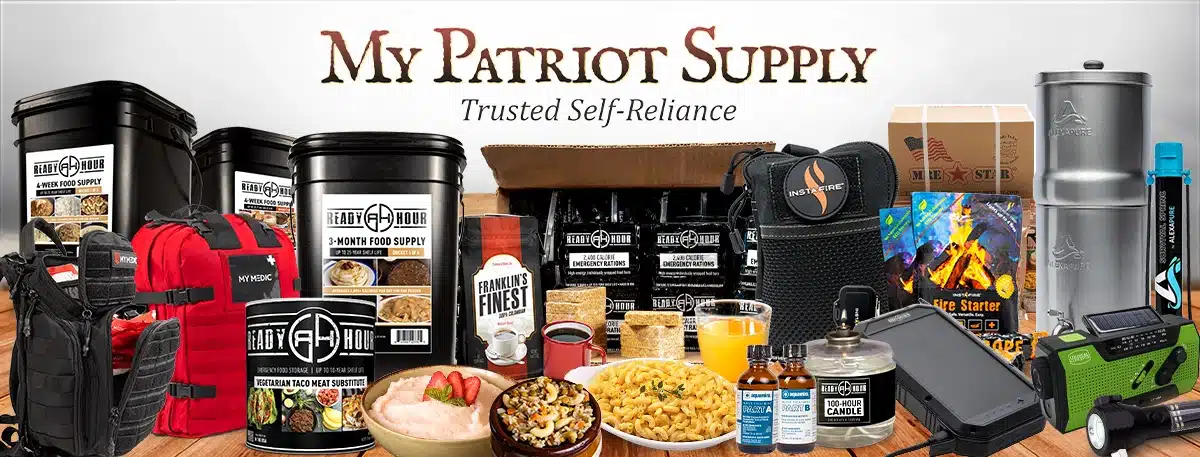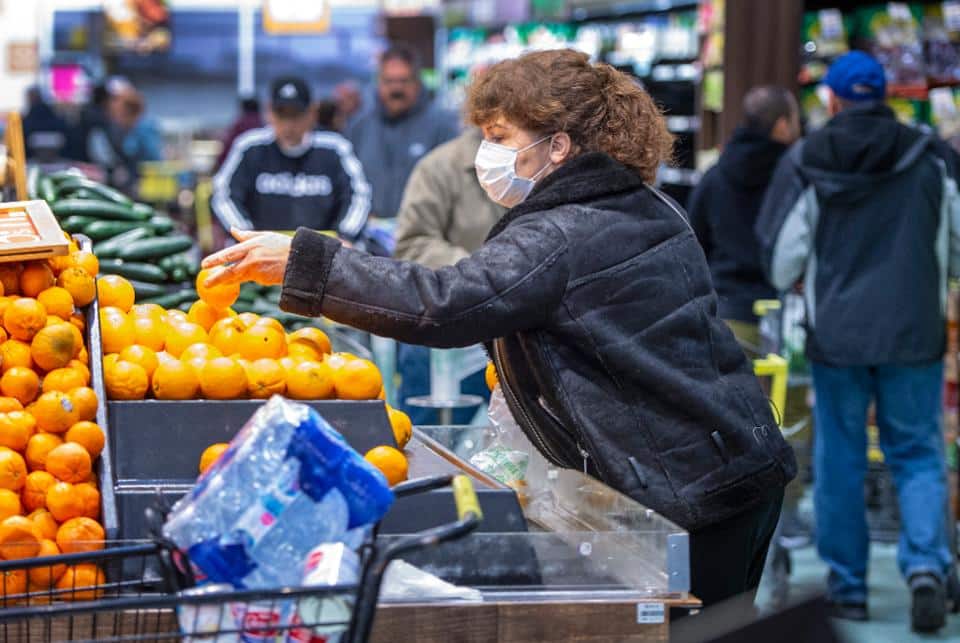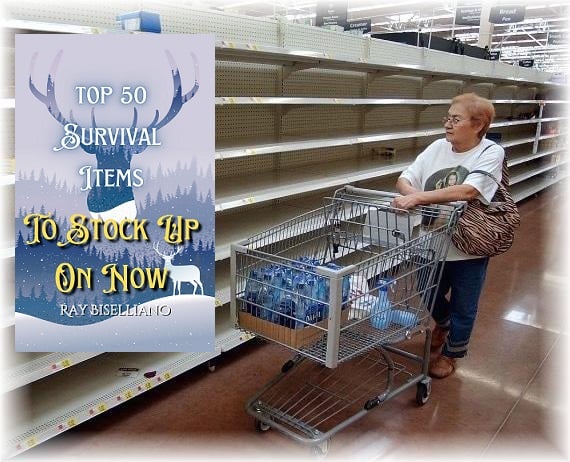The Federal Government Is Working Overtime To Address Stress On Global Supply Chain
DHS Acting Secretary and Acting CBP Commissioner Address COAC at Virtual Meeting during COVID-19 Pandemic
Although the coronavirus has had a major impact on the global economy, not even the pandemic could stop U.S. Customs and Border Protection’s trade advisory group from meeting last week. With an amazing show of support, the Commercial Customs Operations Advisory Committee, known as COAC, convened virtually on Wednesday, April 15.
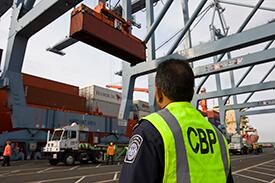
The meeting, which was the COAC’s first public gathering in 2020, was also the first time Department of Homeland Security Acting Secretary Chad F. Wolf addressed the group. “We’ve been relying on your advice, your counsel for nearly two decades,” said Wolf, recognizing the committee’s importance. “Industry partnership is absolutely critical to making sure that we can successfully do our mission,” he said. “We have a vast responsibility. The Department alone cannot secure the homeland. It takes a partnership with industry colleagues to do that.”
CBP Acting Commissioner Mark A. Morgan, who co-chaired the virtual meeting, echoed Wolf’s sentiments. “What’s been clear through this global pandemic, and a stark reminder, is how vital trade is to both our national and economic security. What we’re going through right now with COVID-19 illustrates that,” said Morgan, adding that the United Nations Conference on Trade and Development warned that aside from a tragic loss of life, the COVID-19 pandemic could also generate economic uncertainty that could cost the global economy up to $2 trillion this year. As a result, the United Nations and other international organizations called upon governments to take urgent steps to reduce the economic impact. CBP, in turn, reached out to COAC and met with the committee members virtually.
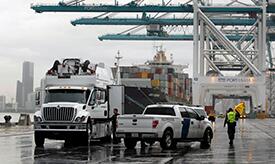
“We asked COAC to help us produce a report with their thoughts and recommendations on COVID-19,” said Morgan. “They were quick to respond and, in a matter of days, produced a solid, candid, and comprehensive document that outlines the many challenges facing critical links in the global supply chain—including CBP,” he said.
Morgan also noted that the COAC’s white paper, which covers four lines of effort—duty and revenue collection; communication and notification; how best to implement a one U.S. government approach; and inspection and enforcement discretion—offers suggestions about how CBP and partner government agencies can exercise regulatory discretion and help ensure the health and integrity of the trade ecosystem.
“We think these lines of effort are spot-on, something we are pursuing, need to continue to pursue, and have dialogue on to make sure we address and get better,” said Morgan. “We deeply appreciate the COAC’s input and insight as always.”
Morgan underscored the importance of communication with trade stakeholders. “Clearly the pandemic has created disruptions to global commerce. That’s why we’re committed to constant communication. In a crisis, whether it’s COVID-19 or another crisis, I don’t think there’s such a thing as over communication. We’ve got to continue to communicate with our trade stakeholders so that we can maintain a clear channel of dialogue on ways to ensure the continuation of legitimate trade,” said Morgan, who told virtual attendees that “keeping trade lanes open is a top priority during this time and CBP is delivering just that.”
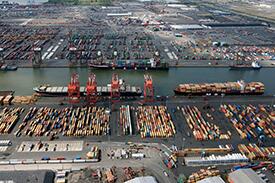
“We continue to process cargo, international mail, and express consignment packages. The Centers for Disease Control and Prevention has not flagged these shipments or given an order to CBP to try to stem the flow. Cargo is flowing and it has continued to flow,” said Morgan. “There’s a lot of confusion and there’s been a lot of misreporting about the borders. I want to make clear that the borders are not closed. Essential travel is permitted and legitimate commercial cargo is still flowing through our ports of entry. That has not stopped and we don’t anticipate that it’s going to. We know firsthand how important the global supply chain is to the economic security of this country.”
The Acting Commissioner also shared that CBP had recently established a special COVID-19 Resolution Team, specifically designed to expedite the importation of critical medical supplies to fight the virus. “We’re working with our government partners—the Federal Emergency Management Agency as well as the Food and Drug Administration and others,” said Morgan. “This really is a one USG, whole of government approach where we are using our collective authorities to work together to address these issues as expeditiously as we can.”
In his opening remarks, Acting Secretary Wolf outlined what DHS is doing to respond to the COVID-19 crisis. One of the areas he discussed was the supply chain and how the Department is accelerating the delivery of supplies to meet the demand, using an air bridge from Asia to the U.S. “Normally, what would take 30 to 37 days getting those medical supplies on a cargo ship, we’re flying them over in a matter of hours to make sure they get to the hotspots,” said Wolf. “We’re getting them to the healthcare industry and other critical industries that need that personal protective equipment in a real-time environment. As of April 14th, we’ve done 44 flights and another 56 flights are scheduled. More come on line every day.”
The discussion also focused on enforcement. “When you combine the stressed supply chain with several trillion dollars of economic stimulus and weave in the anxiety and vulnerability of a large number of people, that’s the perfect storm for criminal organizations to step in and try to defraud people financially and introduce counterfeit products for profit,” said Derek Benner, U.S. Immigration and Customs Enforcement’s acting deputy director.
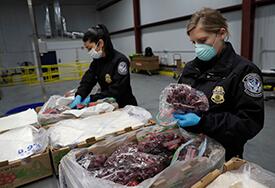
In response, Benner shared that two weeks earlier ICE had launched Operation Stolen Promise, a sting operation designed to combat COVID-19-related fraud and other criminal activities. “We’re seeing a massive increase in domains and fraudulent websites popping up, offering various types of products that people are desperately trying to get,” said Benner, noting that many of the investigative leads were generated by CBP. “Vendors are advertising hand sanitizer, personal protection equipment, various types of therapeutics, antiviral things that are not approved and don’t work. Many times we’re seeing that these vendors don’t even have product. They’re just stealing customers’ information, credit card numbers, money, and then they use that information to engage in phishing scams to try to exploit people further.”
ICE is also investigating financial scams. “A typical scenario might be, ‘Hey, click on this link. We can help you get a stimulus check or we can help you get a loan approval much faster. All you have to do is send us $500 via a money service business,’” said Benner.
The operation is already showing results. “We’ve opened over 130 criminal investigations nationwide,” said Benner. “So far we’ve seized over $3 million in illicit proceeds, made nine arrests, executed seven search warrants, shut down or sink holed over 11,000 COVID-19 domain names, and worked alongside CBP to seize over 225 shipments of mislabeled, fraudulent, unauthorized, or prohibited COVID-19-related products.”
Benner added that, “in building Operation Stolen Promise, one of the core pillars was working with COAC and industry to develop targets, look at vulnerabilities, and share information.”
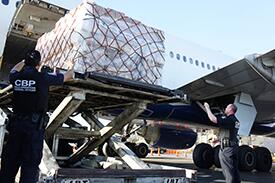
Speaking on behalf of the COAC, Lisa Gelsomino, president/CEO of Avalon Risk Management and an advisory committee co-chair, expressed the trade community’s concerns regarding the crisis. “As a surety, I work very closely with thousands and thousands of importers and customs brokers who are having so many challenges, particularly those nonessential businesses that have been closed down because of the pandemic,” said Gelsomino. “In many cases, small businesses don’t have the cash flow for more than 30 days, so we see a lot of importers and businesses really struggling. We need to continue to work together to help them, not only through the stimulus, but with any flexibility that we can give.”
The meeting, which also was co-chaired by Timothy Skud, the U.S. Department of Treasury’s deputy assistant secretary of tax, trade, and tariff policy, included updates on trade programs and COAC subcommittee work. Forty-four recommendations were presented and unanimously passed. Twenty-nine of the recommendations pertained to intellectual property rights. The remaining 15 focused on forced labor, the United States-Mexico-Canada Agreement, and COVID-19.
COAC is a 20-member advisory committee that was established by Congress in 1987. The committee provides advice and recommendations to CBP and the Department of the Treasury on the commercial operations of CBP and trade-related interdepartmental functions. Some of the issues that COAC focuses on include enhanced border and supply chain security, international efforts to harmonize customs practices and procedures, import safety, compliance, and modernization and automation processes used to facilitate trade.
The next COAC meeting is scheduled to be held in July 2020 in Washington, D.C.
SOURCE: CBP.gov

